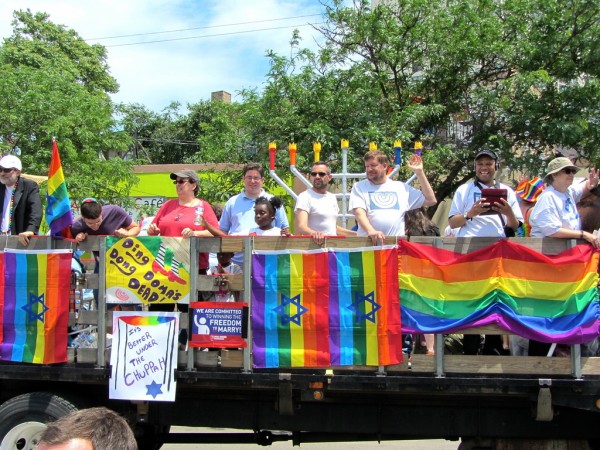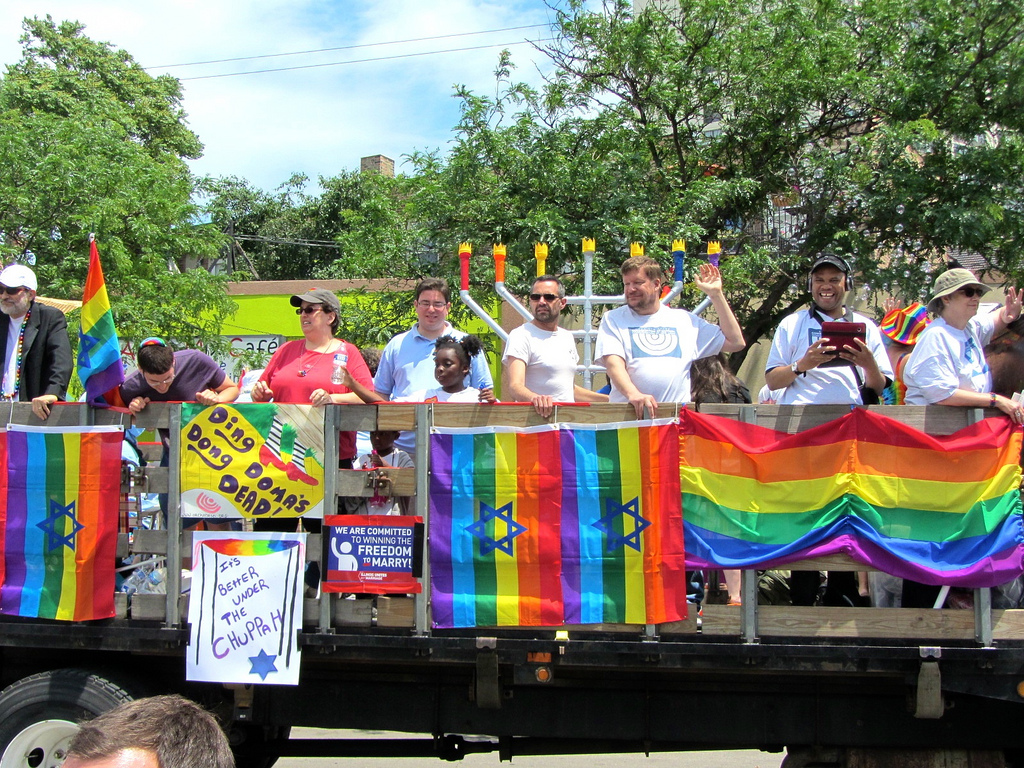
I had the honor of speaking at the Jewish Orthodox Feminist Alliance’s Voices of Change conference last week, where I, only for a day, became a high school student once again and spoke on a panel about navigating relationships and sexuality in high school as a feminist. While speaking, the topic of Shemirut Negi’ah, or the rabbinic prohibition of members of one sex touching members of the other sex, came up. It was there and then that I realized how abandoned I felt by the guidelines that dictate the movement with which, at least on a theological level, I identify.
To be sure, I’ve felt some sort of separation between myself and the Orthodox world since I came out of the closet over two years ago (something that has been chronicled in New Voices), and I always felt somewhat abandoned by the Orthodox community. However, that separation between myself and Orthodoxy became even more pronounced as a result of speaking at the conference.
To be clear: I spent about fifteen whole minutes being shomer negi’ah when I was in sixth grade, and then promptly stopped — at the time, for no apparent reason. Since then, I’ve never really looked back, and do not regret my decision.
However, in starting to seriously think about issues like this, I’ve come to truly understand just how much of the Jewish legal tradition — the same tradition that I was taught was timeless, applied to me, and that, as a “Good Jew,” I was charged with protecting and transmitting to the next generation — no longer applied to me. Given the fact that the rabbis who wrote the Talmud, the basis for the whole genres of legal literature that came after it, could not fathom two members of the same gender entering a lasting, romantic relationship and raising children, and that homosexual acts (or, at the very least, male homosexual acts) are biblically prohibited, there was never any need to include such discussions in the Talmud.
Thus, according to the strictest interpretations of rabbinic literature, if I wanted to obey the letter of the law, I would be barred from physical contact with women, but not from men. And, given the fact that I am queer, this seems horribly backward.
While I’m not about to become shomer negi’ah right now, the fact of the matter is that the Modern Orthodox community has started looking past the biblical prohibition that, in the past, meant that LGBTQ people could not remain part of the Modern Orthodox community. Halakhah, or Jewish law, however, has stayed behind.
If Jewish legal literature is meant to be timeless, then we must adapt for its use today. And that means that it is upon the rabbis, now, to create protocols that are in the spirit, if not the letter, of this rich rabbinic tradition that will allow us, the queer Modern Orthodox Jews, to exist within our communities within the framework of the law. The alternative–that is, obeying the letter of the law—as it is currently, is not a fulfilling alternative.
I used to think that I, as a queer person, broke the heteronormative system of halakhah. I realize now that I don’t—because the norms under which I exist were never present in rabbinic literature, I, by extension, do not exist.
There are ways that rabbinic literature has already been manipulated to create spaces for queer members within the Modern Orthodox world. Now, however, we need to begin pushing further. Creating spaces for queer members of the community within Modern Orthodoxy is not enough: now, it is upon the leadership to take the heteronormative norms and institutions that have existed in Jewish history for heterosexual members of the community and create comparable institutions for its queer members.
That might also mean deeply examining some of the institutions in our tradition that, now, seem antiquated or obsolete, such as traditional marriage ceremonies that portray women as property being passed from father to future husband. However, we can find ways to innovate there, too. We can create new ceremonies that will treat women as more equal partners in marriage and institutions that will allow same-sex couples to marry.
In the same way, Open Orthodoxy has created spaces for women to act as clergy members in their communities through the ordination of the Maharats, and more mainstream Orthodox institutions have also begun creating positions that allow women to take on roles of religious leadership within their communities through the creation of Yoatzot Halakhah, literally, female consultants of Jewish law.
I say these things not because I want to overthrow the system entirely. Unlike many members of the queer community, I see tremendous value, still, in preserving traditional aspects of our community. That is the main reason — if not the only reason — that I remain traditionally observant today, and remain committed to communities that allow me to be traditionally observant.
We need to create new norms for other previously disenfranchised members of the community by creating innovative ways to work with rabbinic norms created 1,500 years ago. Now, it’s time that we use the same innovations for our LGBTQ brothers and sisters. If Modern Orthodox communities are truly accepting of LGBTQ members of their communities, then it is time for them to start providing guidelines that are based on our legal tradition to help us live the lives that we, in turn, want and need.
To be tolerated within the community is one step. The next, now, is to take the standards that applied to our heterosexual peers and apply them to us. In order for us to exist, and be truly accepted within the community, we have to be able to strive toward the same goals that they strive for. This means it is upon the rabbinical leadership of today to take the texts upon which traditional Judaism is based and create new meaning for new members of the community.
Amram Altzman is a student at List College.

